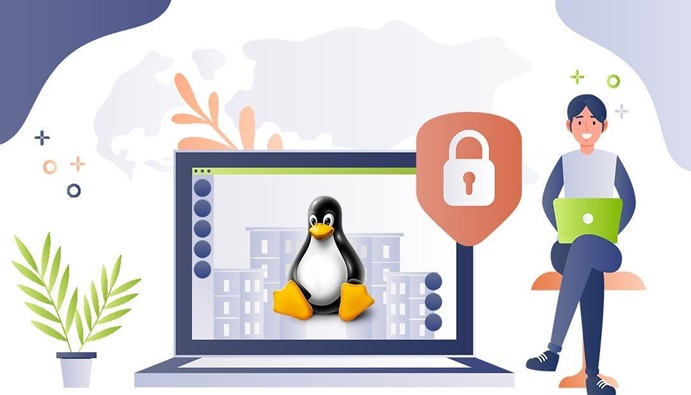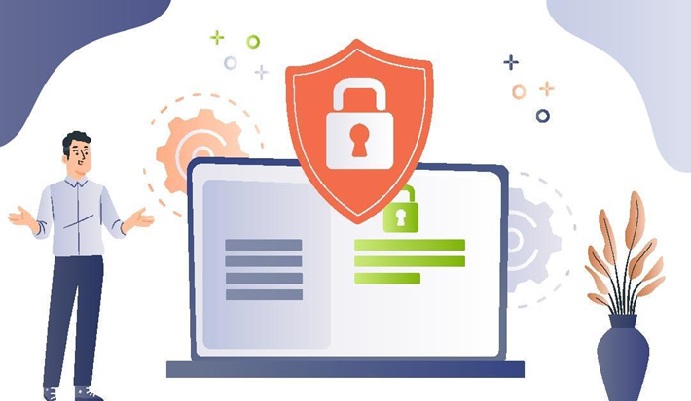Home »
Articles
8 Important Tips To Secure Your Privacy On Linux
By Devin Smith Last updated : December 14, 2023

Introduction
Like with Windows and macOS, you need to secure your Linux device. Patching your Linux device is crucial to ensure it is safe from online threats. Although Linux has cost-effective, versatile, and flexible servers due to being open-source, it still has the drawback that it's vulnerable to security risks, just like any other operating system. You have to take the necessary steps to secure your device so it doesn't fall victim to cyber-attacks and other online threats. In this guide, we'll discuss the best security practices you can implement today to enhance your privacy on Linux. So, if you're ready to secure Linux, let's get started.
Why Is It Necessary To Stay Secure & Private On Linux?

Linux security measures help safeguard your device against unauthorized access and identity theft. It helps prevent unauthorized access to your personal information. Implementing Linux security measures (which we'll discuss in detail in the next section), like strong passwords, firewalls, and encryption, helps prevent unauthorized access to your system.
It leads to serious consequences like data breaches and compromising the integrity of your system. Linux is considered more secure than other operating systems but is not immune to malware and security vulnerabilities. Regular updates, security configurations, and good security practices can help eradicate these issues and ensure that there isn't any risk of malware infections or vulnerabilities being exploited.
Linux users can also encounter phishing scams and social engineering scams. Security consciousness helps them recognize, identify, and prevent falling victim to these attacks, protecting personal and system information. Linux security is also necessary to preserve the user's online privacy. By using secure configurations, privacy-focused browsers, and VPNs, they all contribute towards maintaining your online privacy and anonymity. You can also lose essential and confidential data due to accidental deletion or hardware failure.
In a nutshell, Linux security is necessary because it is open-source, meaning its free code is available freely for examination and modification. While this transparency enhances security by allowing the community to fix any vulnerabilities, it also allows potential hackers easy access to the source code. That's why it's necessary to implement robust security practices to ensure the safety of Linux systems. Many critical servers like web, database, and cloud servers run on Linux. Security breaches on any of these servers can have severe consequences.
8 Security Tips To Enhance Your Privacy On Linux
Here are the most effective security measures to enhance your privacy on Linux and take it to the next level. These include the following:
1) Use A VPN
A VPN (Virtual Private Network) encrypts internet traffic and masks your IP address, making it difficult for ISPs, advertisers, malicious actors, and other third parties to intercept or decipher your data. Using a VPN for Linux enables you to encrypt your internet traffic as it is routed through a secure VPN tunnel. This ensures that all of the data on Linux remains safe and protected, with no one being able to read or decode your confidential data, thus enhancing your online privacy.
2) Stay Updated On Security Patches
Outdated software is one of the most common reasons for security vulnerabilities. It can lead to ransomware attacks, data breaches, remote server execution, and server compromise, which can seriously affect companies, damaging their reputation. You should constantly update the software running on your Linux device as soon as possible to protect yourself against vulnerabilities. Regularly update your Linux distribution and installed software to patch security vulnerabilities. You should also ensure that any software you install runs the latest versions.
3) Data Encryption
You should encrypt your entire disk using tools like LUKS (Linux Unified Key Setup) to protect your data on Linux if it gets lost or stolen. You should also encrypt the Linux system's data by ensuring that only authorized users can gain access with an encryption key. Full-disk encryption only releases the decrypted data after users provide proof of identity through a passphrase or key. These measures add an extra layer of security by ensuring it protects content even if there's a breach.
4) Use Strong Passwords & Enable MFA
You should set strong and unique passwords for your user and root accounts. The password strength and complexity can help protect against brute-force dictionary attacks. Passwords for all critical accounts should be 12 characters and changed frequently. It would be best to choose a password that's not easy and should have these necessary components: an uppercase, lowercase letter, special characters, and numbers.
You should also enable MFA (Multi-Factor Authentication) on Linux. Multi-factor authentication ensures that you need additional verification to confirm someone's identity before giving them access to a data, server, or control set. It ensures that no one can access any system without providing additional verification like a one-time password or a question only you can answer. This ensures no hacker can access the system and access sensitive data.
5) SSH Security
If an attacker gains access to SSH, they would have complete control over the server, making it necessary to keep it secure at all costs. You should disable the root login via SSH and use SSH keys for authentication instead of using passwords. Changing the default SSH port makes it more difficult for attackers to find your SSH service. An SSH server lets you access servers safely and securely without entering a password. You don't have to develop an SSH key; you only have to use the Linux terminal to generate a new SSH key and then upload the key to the server using this command: $ ssh-copy-id <username>@ip_address.
6) Firewall Configuration
Configuring a Firewall to control incoming and outgoing network traffic UFW (Uncomplicated Firewall) is a user-friendly option for security purposes. Firewalls are known to be effective in protecting databases and servers from all kinds of cyber attacks.
Firewalls should also be updated regularly for new security updates, and our chosen firewall should have the web server access to accomplish this. UFW enables you only to allow network traffic you approve of. You can install UFW using the code: $ sudo apt install ufw. Once installed, UFW will deny incoming network connections but allow outgoing network traffic.
7) Only Install Essential Third-Party Packages
Since Linux is open-source, there's no limit to how many third-party packages or additions you can install. While most of these can be fun and valuable, they can come with added security concerns that can cause problems for individuals and organizations. You should only install server packages that you, for a fact, you'll use regularly and that have a good reputation. You should also only install software from trusted repositories. Don't add random or untrusted repositories to your package manager.
8) Black Booting From External Devices
Most administrators consider online threats the only threats they encounter, but physical attacks are also a considerable possibility. Piggybacking or (tailgating) is a method that's used to gain physical access to servers. Booting servers with a USB device gives attackers numerous ways to run malware and steal data. To disable booting from a USB device, you must run # chmod 000 /media/.
Wrapping Up
Linux systems also need security implementations like any other operating system. While it's known to be more secure than other operating systems like macOS and Windows, it is also susceptible to security risks and vulnerabilities if the appropriate security measures aren't implemented to eradicate them. Using the tried and tested ways mentioned in this guide to secure your Linux device, your sensitive data is getting compromised, and online threats will be a thing of the past. This is the ultimate guide to help you secure your Linux device without hassle and confusion.
Advertisement
Advertisement